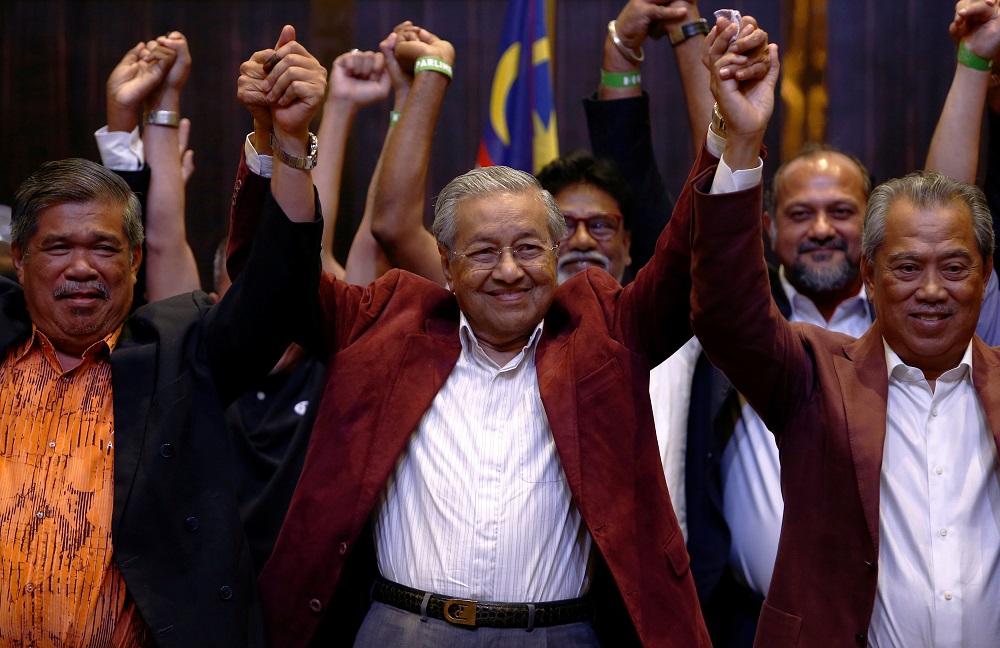KUALA LUMPUR, Jan 1 — Since winning Putrajaya in the 14th general election, the maiden administration of Pakatan Harapan (PH) has not been immune to criticism, especially after the euphoria of overthrowing Barisan Nasional (BN) died off.
The coalition was slammed for missing a number of its election manifesto pledges and frustrating U-turns, while some in the largely inexperienced Cabinet were either underperforming or at times made the most baffling choices.
But amid all that, there is no denying that satisfaction with the new government remains much higher than when Datuk Seri Najib Razak was in power.
This was largely due to a number of popular decisions made, either populist or progressive in nature. Malay Mail lists some of them here:
1. Abolishing GST
As one of its main pledges, the PH government immediately announced barely a week after it took power that the Goods and Services Tax (GST) would be zero-rated in June.
The effect was immediate as inflation sharply dropped over the tax holiday period. A survey by Putrajaya estimated that seven in 10 goods were cheaper during that time, and sales were rejuvenated across the board.
After the Sales and Services Tax (SST) regime came into effect in September, inflation has been slowly creeping back up, but Putrajaya insists that the prices of most essential goods have remained lower than during the previous regime.
2. Sorting out the 1MDB mess
After years of Putrajaya closing one eye to sovereign fund 1Malaysia Development Bhd (1MDB) and the many foreign investigations and lawsuits against it, the PH government wasted no time in charging those responsible.
To date, some of those who were once thought to be untouchable like Najib, his wife Datin Seri Rosmah Mansor, and former 1MDB chief executive Arul Kanda Kandasamy have all been dragged to court and slapped with various charges — making good on PH’s promise.
Malaysia will now seek to recover tens of billions of ringgit worth of assets seized under the United States’ Department of Justice’s kleptocracy suits, and millions more from Singapore.
The previously secretive Auditor-General’s report on 1MDB has also been declassified, and Najib has been accused of altering the final report to exclude the involvement of himself and broker Jho Low.
3. War on corruption
In its bid to eradicate corruption among lawmakers, mandatory asset declaration was implemented while Prime Minister Tun Dr Mahathir Mohamad said the Cabinet will not be allowed to receive expensive gifts, and only food, flowers or pewter plaques.
As at December 9, the Malaysian Anti-Corruption Commission (MACC) said that there are 13 MPs and 24 senior government officials, including political secretaries, who have yet to declare their assets, while 115 MPs and 63 government officials have already done so.
The MACC also has undertaken a slew of arrests and charges against alleged criminal breach of trust and abuse of power among Umno leaders, from Tabung Haji’s Datuk Seri Abdul Azeez Abdul Rahim to Najib himself.
4. Appointing a formidable attorney general
The appointment of seasoned litigator Tommy Thomas was perhaps one of the most controversial moves by PH, but the soft-spoken and media-shy lawyer has seemingly proved his mettle.
He swooped in on the 1MDB case which courted international headlines and immediately hired some of the best litigators to recover fugitive financier Jho Low’s assets, and will now pursue a suit against bank Goldman Sachs.
Most recently, Thomas also stepped in to settle the Seafield Sri Maha Mariamman Devasthanam temple dispute with the land owner One City Development Sdn Bhd, cutting short a case that could have blown up into much more.
5. Breathing new life into the EC
The appointment of outspoken lawyer Azhar Azizan @ Harun, or Art Harun as he is popularly known on social media, as the new Election Commission (EC) chairman was lauded by many from the legal fraternity to progressive activists as a breath of fresh air.
During the Port Dickson by-election, the EC even delivered a sternly-worded statement warning Cabinet members and politicians holding government positions to not indulge in campaigning activities during working hours, chiding candidates over election offences and urging for equal access to voters.
It has also come down hard on candidates who failed to submit their election expenditure statements, and announced a more convenient procedure for candidate nomination.



















